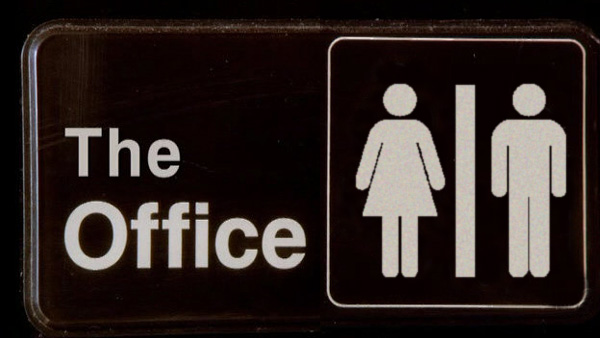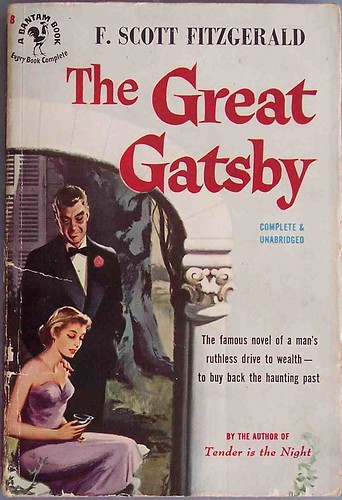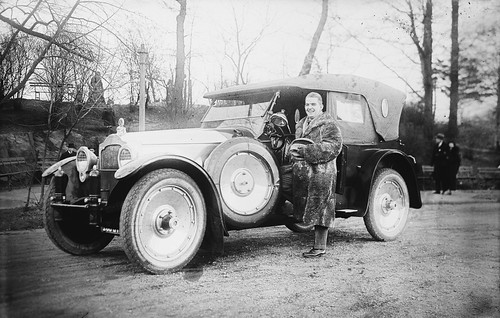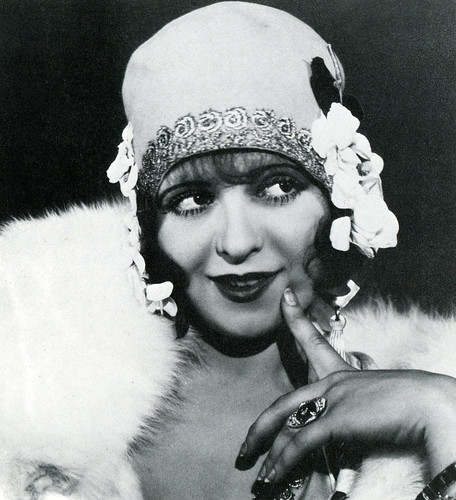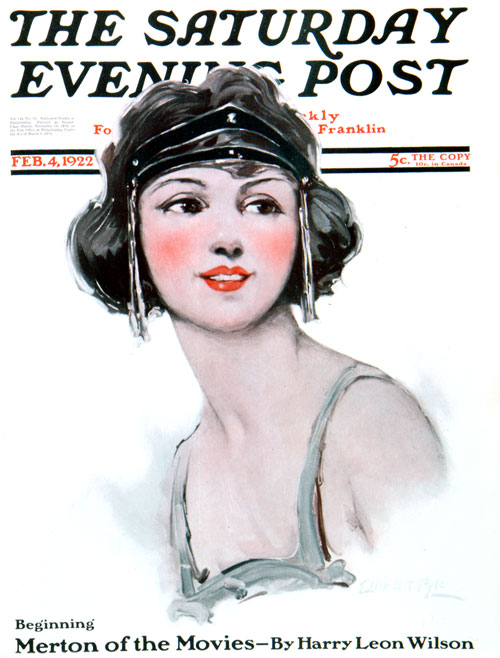This season wraps the eight-year run of the mockumentary about a little paper company. We’ve gathered our favorite words from the last season here.
Belsnickel
Dwight: “What about an authentic Pennsylvania Dutch Christmas? Drink some gluhwein, enjoy some hasenpfeffer. Enjoy Christmas with St. Nicholas’s rural German companion, Belsnickel?”
“Dwight Christmas,” December 6, 2012
Belsnickel is “a crotchety, fur-clad Christmas gift-bringer figure in the folklore of the Palatinate region of southwestern Germany,” and is “preserved in Pennsylvania Dutch communities.” The name comes from the German pelz, “to pelt,” and the name Nikolaus. See also Krampus.
Bildenkinder
Jim: “Did you ever think that because you own the building, everyone in it – we’re all kind of like your children.”
Dwight: “You know, there’s a phrase about that in German: Bildenkinder. Used almost exclusively by childless landlords to console themselves.”
“Work Bus,” October 18, 2012
Bildenkinder is a nonsense German word which translates as “formation (Bilden) children (Kinder).”
bund
Andy: “Dwight’s grandfather was – ”
Dwight: “A member of the bund, which is technically not the same thing as the Nazi party.”
“Andy’s Ancestry,” October 4, 2012
The bund was “a pro-Nazi German-American organization of the 1930s.” It was also “a European Jewish socialist movement founded in Russia in 1897.” Bund translates from German as “alliance, league.”
chore wheel
Pam: “The building’s custodian is on vacation for the month, and Dwight is too cheap to hire a replacement. So instead we’re living in filth. But not for long because I have created. . .the chore wheel.”
“Roy’s Wedding,” September 27, 2012
Pam’s chore wheel plays off the wheel of fortune, or rota fortunae, “a concept in medieval and ancient philosophy referring to the capricious nature of Fate,” as well as the Wheel of Fortune game show.
coolio
Andy: “Are we coolio? Just say the word ‘coolio.’”
Dwight: “Not a word.”
“Couples Discount,” February 7, 2013
Coolio is slang for cool or awesome.
Dumpster Man
Kevin: “What was the word they said when they showed me? Skraldespand? What’s that mean in Danish? Cool guy?
Oscar: “Dumpster Man.”
“Promos,” April 4, 2013
Dumpster Man is what Kevin is referred to in the Danish promo for the fictional documentary of the show. The Danish word seems to be skraldemanden.
full-ass
Nellie: “What if you were to stay here and ‘full-ass’ it?”
“Livin’ the Dream,” May 2, 2013
To full-ass is something is to do it to the utmost of one’s ability. Its opposite is half-ass, to do something without much effort. Half-ass is a back formation of the adjective half-assed, “not well planned or executed.” Half-assed originated around 1932, “perhaps a humorous mispronunciation of haphazard.”
gotcha journalism
Dwight: “This is gotcha journalism, and you know what? They’re not gonna gotch me.”
“The Boat,” November 8, 2012
Gotcha journalism is “any method of interviewing designed to entrap interviewees into making statements that are damaging or discreditable to their cause, character, integrity, or reputation.” The earliest citation we could find for this phrase was from 1991. Please antedate us if you can!
Irish exit
Darryl: “I hate goodbyes so last week when I left Dunder-Mifflin for good, I pulled the old Irish exit, just slipped out without making a big deal.”
“A.A.R.M.,” May 9, 2013
An Irish exit is leaving without saying goodbye. The phrase may come from the practice of Irish Americans leaving social functions without alerting anyone, knowing that goodbyes would be long and delay their departure, or perhaps, more stereotypically, leaving without a word because one is drunk.
kitchen witch
Aunt Shirley [about Angela]: “Who’s this little kitchen witch? She’s so tiny like a little kitchen witch.”
“Moving On,” February 14, 2013
A kitchen witch is a “homemade doll resembling a stereotypical witch or crone displayed in residential kitchens as a means to provide good luck and ward off bad spirit.” The country of origin may be Norway or Germany, which is where Dwight’s family, including his Aunt Shirley, is from.
kobold
Dwight: “Troy is literally one of a kind. He’s a goblin or a Hobbit or a kobold, which is a type of gremlin.”
“Junior Salesman,” January 31, 2013
A kobold is “an often mischievous household elf in German folklore.” Kobold comes from the German kobolt, which also gives us cobalt, from silver miners’ belief that the element had been placed by goblins who had stolen the silver.
perfektenschlage
Dwight: “I am so deep inside of perfektenschlage.”
“Special Project,” February 9, 2012
This word is from last season, but we couldn’t help but include it. Perfektenschlage is “when everything in a man’s life comes together perfectly.” The second meaning is “perfect pork anus.” The word translates from the German as “perfect (perfekt) bang or blow (schlage).” It’s most likely a nonsense word.
sausage factory
Pete: “This next card comes to us thanks to Meredith Palmer who called Eastern Pennsylvania Seminary a, quote, sausage factory.”
“The Target,” November 29, 2012
A sausage factory is “a party or gathering with few to no women present.” It also refers to in literature, “an unappealing process to generate something familiar”; in journalism, “the process of creating news”; and in politics, “dealing and compromise done behind the scenes to enact legislation.”
Silicon Prairie
Ryan: “I’ve actually done a lot of market research and it turns out that southwestern Ohio is going to be the next Silicon Valley. They call it the Silicon Prairie. It’s a big university town.”
“New Guys,” September 20, 2012
Silicon Prairie plays off of Silicon Valley, “a region in California to the south of San Francisco that is noted for its concentration of high-technology industries.”
The coinage of the phrase Silicon Valley is credited to journalist Don Hoefler who wrote a series of articles entitled “Silicon Valley USA” in 1971.
Stairmageddon
Erin: “Didn’t you get the memo? It’s stairmageddon!”
“Stairmageddon,” April 11, 2013
Stairmageddon is a blend of stair and Armageddon, “the scene of a final battle between the forces of good and evil, prophesied to occur at the end of the world.” As Oscar says, the Dunder-Mifflin office “has an unusually large number of unusually large people,” so when “something is routine as elevator maintenance happens and people are forced to expend cardiovascular effort, [they] have to compare it to the end of time.”
white whale
Dwight: “There’s a reason we in the paper industry call [the White Pages] the white whale. Look at all that sweet blubber.”
“The Whale,” November 15, 2012
White whale refers to Moby-Dick, the elusive white whale in Herman Melville’s novel. The expression now refers to anything desirable yet elusive to the pursuer.
YOLO
Oscar: “YOLO! It’s a thing. It means you only live once.”
Kevin: “We’re aware of what it means, Oscar. You just do not look cool saying it.”
“Suit Warehouse,” January 17, 2013
YOLO stands for “you only live once.” While YOLO came about in the last few years, according to Ben Zimmer, “the exact wording of ‘you only live once’ begins cropping up in the late 19th century, and by 1937 it was popular enough to be used as the title of a Fritz Lang film noir.”
Zuckerberg
Darryl: “You’ve got a real Facebook energy going here. You Zuckerberged this place out.”
“Suit Warehouse,” January 17, 2013
Zuckerberg in this context means to turn a workplace into something hip and casual, similar to what a start-up like Facebook might be (although the employees at Jim’s company all wear suits as opposed to, say, hoodies).
